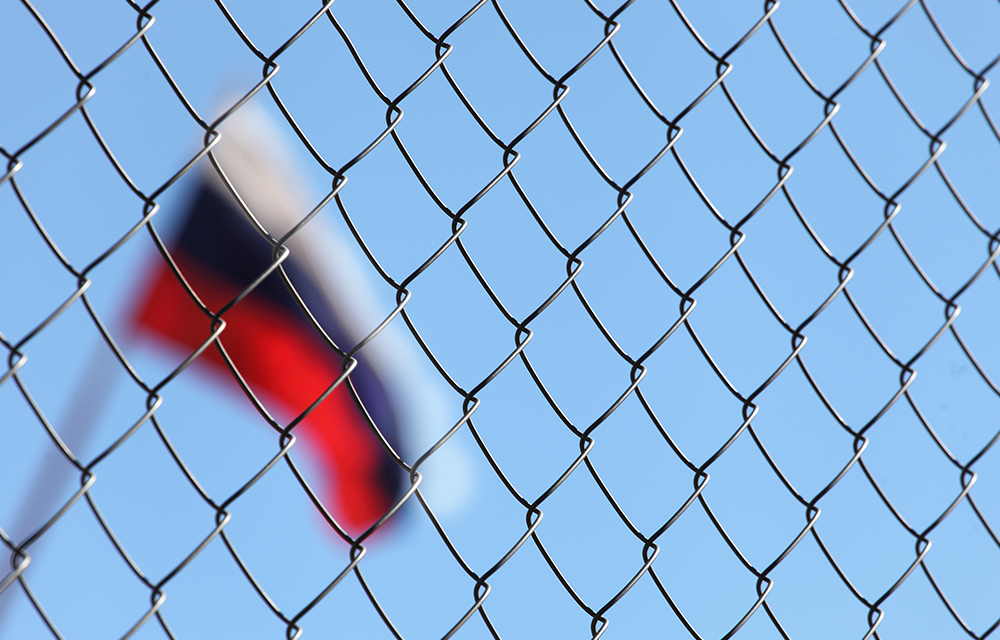Norway implements EU sanctions imposed on Russia
Norway has implemented all four of the EU’s sanctions packages imposed on Russia. The sanctions require businesses to take significant steps to ensure compliance and may even affect business relations with non-sanctioned entities.
Norway has implemented all four of the EU’s sanctions packages imposed on Russia. The sanctions require businesses to take significant steps to ensure compliance and may even affect business relations with non-sanctioned entities.

Sanctions have been imposed on Russia since the annexation of Crimea in 2014, both by the EU and Norway. Initial measures included an asset freeze and travel ban for certain persons and entities, and restrictions on trade for certain products and sectors (including arms and military material, dual-use goods and technology, technologies for the oil industry, and transferable securities and money-market instruments). The recent amendments have made the regimes more extensive and far-reaching.
The main categories of sanctions are as follows:
- Persons and entities: travel ban and asset freeze (including assets of persons or entities that are owned or controlled by listed persons or entities).
- Products and sectors: restrictions on the import and export of certain products within specified sectors or product categories, as well as restrictions on the provision of certain related services. Note that wind-down periods of varying durations may apply and that various exceptions exist.
- Financial restrictions: restrictions on access to and the provision of financial services.
- Transport restrictions: ban on overflight of specified territories.
- Area-specific restrictions: separate restrictions apply to Crimea and Sevastopol, Donetsk and Luhansk, and Belarus.
Companies that are unfamiliar with sanctions rules should be particularly aware of the implications of the asset freeze imposed on persons and entities, whose effects extend far beyond Russia and the actual list of targets.
Companies should ensure that they are not dealing with sanctioned persons or entities, or persons or entities directly or indirectly owned or controlled by these, by requesting information from their suppliers and customers. Confirmation should be requested from suppliers that the supplier itself is not owned or controlled by a sanctioned person or entity and that its supply chain does not include a sanctioned person or entity, or a person or entity with direct or indirect links to these. Similarly, confirmation should be requested from customers that the customer itself is not owned or controlled by a sanctioned person or entity, and that it will ensure that products are not resold to companies owned or controlled by a sanctioned person or entity.
This is necessary as the sanctions rules are capable of catching the resale of your goods by your customer to a sanctioned (directly or indirectly) person or entity, or a payment to your supplier that benefits a sanctioned (directly or indirectly) subcontractor. As such, it is important to remember that knowledge of direct supplier and customer relationships will not be sufficient to ensure compliance.
Going forward, companies should therefore be aware that any customer or supplier, existing or new, may have direct or indirect links to listed persons or entities and that such links may not be immediately apparent, e.g., indirect control by a listed person or entity.
A number of other countries have also imposed sanctions on Russia, with the UK and US having some of the most elaborate regimes. The same transaction may be caught by multiple sanctions regimes and the threshold for jurisdiction varies between regimes. A payment made in US dollars may be enough to trigger US jurisdiction, even without any other connection to the US.
The remainder of this article will provide some guidance on the contents of the sanctions that are in force in both Norway and the EU, as well as potential practical implications. Note that the EU sanctions imposed on Russian state-owned media companies Russia Today and Sputnik are still under review by the Norwegian authorities and not yet implemented by Norway.
Persons and entities
Specific persons and entities have been targeted by the EU’s sanctions regime. These are set out on the EU’s sanctioned persons and entities list. Particular attention should be paid to new additions as the list is frequently updated.
The sanctions imposed on listed persons and entities include a travel ban and an asset freeze, with the latter preventing listed persons and entities from accessing and using funds and economic resources under their ownership or control. Note that funds and economic resources belonging to entities directly or indirectly owned or controlled by listed persons or entities may also be covered.
As a consequence of the asset freeze, it is prohibited to make funds or economic resources available to listed persons and entities, both directly and indirectly. Making payment to an entity owned or controlled by a listed person or entity may therefore be prohibited, e.g., to a non-listed non-Russian subsidiary.
The term economic resources is widely defined and means assets of every kind, both tangible and intangible, movable and immovable, which are not “funds” but may be used to obtain funds, goods, or services.
Consequences in practice
Imports
- Goods that are subject to the asset freeze cannot legally be delivered to your company and you may need to find an alternative source of supply.
- Payments for goods cannot be made to sanctioned persons or entities. Note that payments to entities directly or indirectly owned or controlled by sanctioned persons or entities may also be prohibited.
Exports
- Goods cannot be supplied to sanctioned persons or entities. Note that this may also apply to entities directly or indirectly owned or controlled by sanctioned persons or entities.
- The sanctions rules may prevent the transfer of payments from sanctioned persons or entities. Note that this may also apply to payments from entities directly or indirectly owned or controlled by sanctioned persons or entities.
Products and sectors
Products and sectors – imports
Import restrictions have been imposed on the following categories of products and industry sectors.
Arms embargo. A total import ban on arms and related materials from Russia. This extends to the transport of such arms and materials and the provision of any related technical or financial assistance and services.
Iron and steel. A ban on the import of certain iron and steel products.
Products and sectors – exports
Export restrictions have been imposed on the following categories of products and industry sectors.
Arms embargo. A total export ban on arms and related materials to Russia. This extends to the transport of such arms and materials and the provision of any related technical or financial assistance and services, as well as goods and technology which might contribute to Russia’s military and technological enhancement or the development of the defence and security sectors.
Dual-use goods and technology. A prohibition on the export of dual-use items for military purposes, for the benefit of a listed person or entity, or that may contribute to technological enhancement of the defence and security sector. Note that the provision of related technical or financial assistance and services is also prohibited.
Energy. A ban on the export of certain goods and technologies related to oil refining, as well as a ban on the sale of aircrafts, spare parts, and equipment to Russian airlines. Note that the provision of services related to these goods and technologies is also prohibited. Additionally, restrictions have been imposed on the provision of services, equipment, and technology for the energy industry, including activities related to power generation and electricity production.
Aviation and space. A ban on the export of certain goods and technologies related to the aviation and space industries. Note that the provision of services related to these goods and technologies is also prohibited.
Maritime navigation. Restrictions on the export of maritime navigation goods and radio communication technology. Note that the provision of related technical or financial assistance and services is also prohibited.
Luxury goods. Restrictions on the export of certain luxury goods.
Financial restrictions
A range of financial sanctions have been imposed, including restrictions on access to capital and financial market and services, a ban on transactions with the Russian Central Bank and certain listed entities, including state-owned companies, a SWIFT ban for a number of Russian banks, a prohibition against the provision of credit rating services, and a prohibition on the provision of euro-denominated banknotes. Additionally, there is a ban on new investments in the Russian energy sector.
Consequences in practice
Imports
- Banks will not process a prohibited payment, i.e., payment to a sanctioned person or entity.
- Making payments even to non-sanctioned persons or entities in Russia may be more difficult due to the financial restrictions.
Exports
- Banks will not process a prohibited payment, i.e., payment from a sanctioned person or entity.
- Receiving payments even from non-sanctioned persons or entities in Russia may be more difficult due to the financial restrictions.
Transport restrictions
A ban on the overflight of EU and Norwegian airspace, including access to airports.
Area-specific restrictions
Crimea and Sevastopol. A total ban on the import of goods from Crimea and Sevastopol and a ban on the export of goods and technologies for use in the transport, telecommunications, energy and oil, gas, and mineral sectors. Note that there are also restrictions on certain types of investments and the provision of tourism services.
Donetsk and Luhansk. A total ban on the import of goods from Donetsk and Luhansk and a ban on the export of goods and technologies for use in the transport, telecommunications, energy and oil, gas, and mineral sectors. Note that there are also restrictions on certain types of investments and the provision of tourism services.
Belarus. The EU has imposed a range of sanctions on Belarus, including financial restrictions and restrictions on imports and exports. These sanctions are currently under review by the Norwegian authorities and are likely to be implemented in the near future. Note that Norway has already implemented the EU sanctioned persons and entities list in its entirety, meaning that Belarusian persons and entities are already listed for the purposes of the travel ban and asset freeze under Norwegian law.



